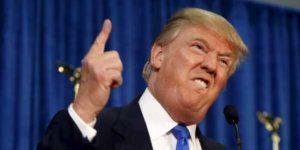I came into this world more than 68 years ago. My first memory of anything takes me back to when I was around 3 years of age.
Over many of the next nearly seven decades I have been fairly politically dialed in. I have had a great interest in politics and public policy. I was able to shake Bobby Kennedy’s hand in May 1968, a week before he died at the hands of an assassin. I returned from the Army in 1970 and became a college campus volunteer for George McGovern’s failed campaign in 1972. I have been able to cover two national presidential political conventions.
Thus, I must declare that this time in our history — during the presidency of Donald John Trump — is the first time I can recall such widespread discussion of whether the president of the United States is friendly to white supremacist hate groups.
This upcoming weekend will mark the first year since the riot exploded in Charlottesville, Va., the incident that started with white supremacists protested the removal from a public park of a statue of Gen. Robert E. Lee.
It got ugly. Counter protesters challenged the haters. A young woman died when she was run over in the melee; a young man associated with the hate groups has been charged with murder.
Donald Trump has refused to condemn the white supremacists singularly. He has been virtually silent about the Klan and the neo-Nazis.
I was born during the Truman years. My first presidential memory is of Dwight Eisenhower. Every single president from Ike’s era has not been the subject of this kind of discussion.
Until now. Trump has broken the mold. He is the first president in my lengthy memory who continues to be associated in the minds of many Americans with those who espouse the kind of violence that the rest of us condemn with a full-throated roar.
We are witnessing a scary precedent coming from an equally scary president.
So … sad.
